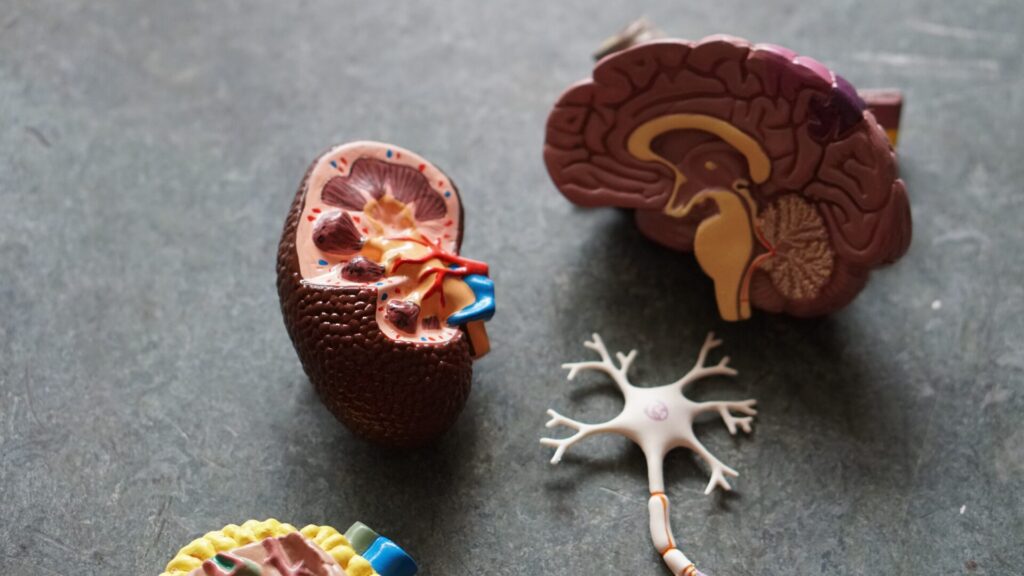Did you know there’s a simple test – the albumin-to-creatinine ratio – that can detect the early signs of kidney dysfunction before the damage becomes irreversible?

What is the albumin-to-creatinine ratio?
The albumin-to-creatinine ratio (ACR) or urine microalbumin is a test that detects elevated protein levels, a key marker for kidney problems. It consists of a spot urine sample analysis that divides the albumin concentration in milligrams by the creatinine concentration in grams. A normal ratio is less than 30 albumin (mcg/L) to creatinine (mg/L). A ratio of 30-300 indicates microalbuminuria (a moderate increase in albumin), while a ratio in excess of 300 signifies macroalbuminuria (significant increase in albumin).
The albumin-to-creatinine ratio is more precise than the standard renal function test, a blood test that acts as a general marker of problems with kidney function. If your renal function test is abnormal, you know there’s a problem, but not what that problem is, which means you’d have to undergo further tests like the albumin-to-creatinine ratio to determine what’s causing your kidney problems. But what are albumin and creatinine, and what does the ratio mean for your health?
Defining albumin and creatinine
Albumin is a protein produced in your liver that helps keep blood in your arteries and veins. It also transports hormones, enzymes, and vitamins throughout your body. Low albumin levels in your blood signify serious liver and kidney dysfunction, while high levels (hyperalbuminemia) are often due to dehydration.
Creatinine is a compound produced when your muscles are working. It’s a waste product that your kidneys filter from your blood, then expel in your urine. Measuring creatinine levels helps doctors evaluate your kidney function.
While it’s possible to measure these substances independently, the albumin-to-creatinine ratio is a more insightful test for kidney disease due to conditions like diabetes or hypertension (high blood pressure). The main reason for this is that albumin levels in your urine vary throughout the day, while creatinine release occurs at a steady rate. This means your doctor can produce a more accurate albumin measurement by comparing their results to the quantity of creatinine they find in your urine.
The albumin-to-creatinine ratio is typically used as a screening tool for people who have a higher risk of kidney disease. Detecting the condition early on helps you avoid the serious complications that could arise from untreated kidney conditions. If you have type 1 diabetes, your health care provider is likely to recommend an albumin-to-creatinine ratio test every five years, while patients with type 2 diabetes should have the test every year. You should also get regular albumin-to-creatinine ratio tests if you have hypertension.
What makes the albumin-to-creatinine ratio worse?
Several things adversely affect the albumin-to-creatinine ratio, including:
- High levels of salt and sodium in your diet
- High blood pressure
- Diabetes
- Smoking
- Being overweight or obese
- Not getting regular exercise
Some vitamins and minerals, herbs, or other supplements may also contain substances that affect your albumin and creatinine levels, so it’s best to work with a specialist in nutrition or functional medicine to ensure you’re using supplements that help rather than hinder kidney function.
In addition to these causes, there are ones under the surface that you won’t be aware of, like the activity of lipopolysaccharides and gut microbiome health.
What are lipopolysaccharides?
Lipopolysaccharides are bacterial toxins. They’re normally restricted to your gut because the molecules are too big to get through the walls of your gastrointestinal tract and your liver clears them from your body. However, a high-fat diet, problems like leaky gut, and infections can allow the molecules of lipopolysaccharides to squeeze through gaps in the damaged intestinal lining. Furthermore, albumin reacts with lipopolysaccharides. The result is substances that promote the creation of superoxides – free radicals that are harmful to your body’s cells.
The gut microbiome consists of trillions of microbial cells that work with your body to mutual benefit. There’s still a great deal to uncover about these microbiota, but estimates put the number of different species in excess of 1,000, many of which perform vital functions. A healthy, diverse microbiome is essential not just for digestion but also for general health, including keeping creatinine and albumin levels in check. For example, several strains of microbes degrade creatinine, safely recycling it into amino acids.
By improving the health of your gut microbiome, you can enhance your albumin-to-creatinine ratio. One way to do this is by eating a wide range of foods, including uncooked fruit and vegetables, especially high fibre ones. Antioxidants like polyphenols, which are found in brassicas, nuts, berries, seeds, olive oil, and green tea, help by feeding the microbes. Avoid processed foods and products like artificial sweeteners, as they’re harmful to your gut microbiome.
None of the steps you need to take to keep your albumin-to-creatinine ratio healthy are complicated or involve using drugs, so make those changes today, and you could avoid kidney problems.








